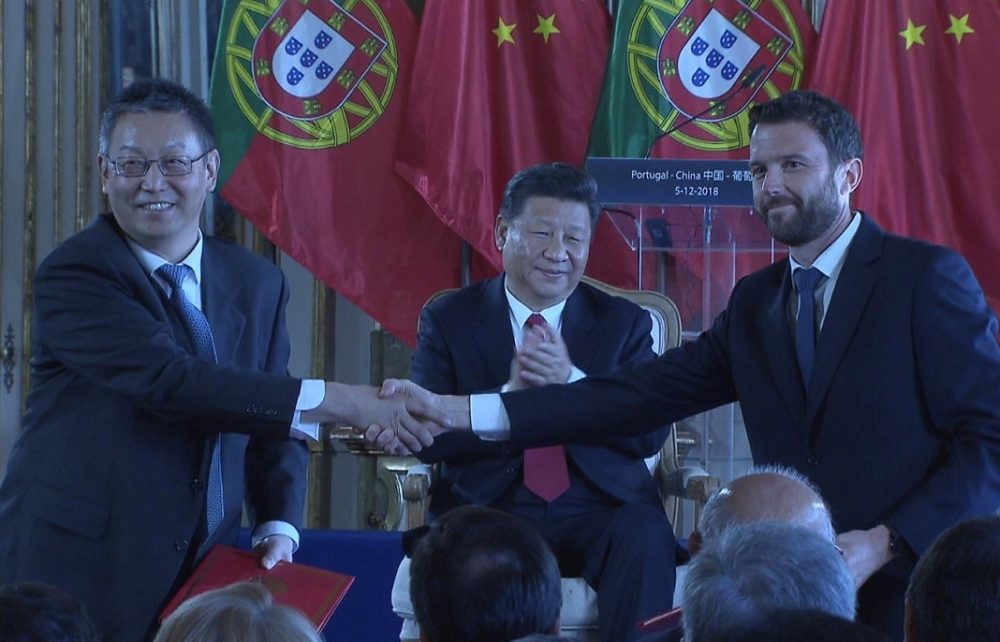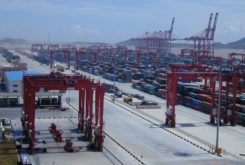STARLab, a Sino-Portuguese laboratory dedicated to the development of technology to monitor the oceans, has become part of the Chinese Belt and Road initiative.
According to China’s Ministry of Science and Technology, the Joint Space and Maritime Technology Laboratory (STARLab) was awarded the distinction during a seminar with nearly 40 representatives from universities and scientific research institutions in China and Portugal.
STARLab is a joint project of the Portuguese Foundation for Science and Technology and the Academy for Innovation in Microsatellites of the Chinese Academy of Sciences (IAMCAS) and resulted from a scientific and technological cooperation agreement signed during the visit of Chinese leader Xi Jinping to Lisbon in 2018 (pictured above).
Portugal Aiming for Chinese Investment in Life Sciences, Automotive and Tourism
Zhang Yonghe, director of IAMCAS, said the laboratory is studying climate change, deep ocean currents and the health of marine ecosystems, according to the Xinmin Evening News. The laboratory has served as a platform for cooperation with universities and research institutions in Portugal, added the deputy principal director of IAMCAS, Lin Baojun, cited by the Chinese state daily.
The Portuguese minister of Science, Technology and Higher Education, Manuel Heitor, and his Chinese counterpart, Wang Zhigang, also had a videoconference meeting. Heitor called for a greater exchange of scientific students and researchers between Portugal and China, according to Portuguese media.
Wang Zhigang argued that, since 2018, there has been “substantial progress” in bilateral cooperation in areas such as climate change, sustainable development and protection of cultural heritage. Both ministers called for a strengthening of Macau’s role in scientific and technological cooperation between Portugal and China.
The STARLab hub in Portugal opened in Caldas da Rainha in July 2019, in a public-private partnership that on the Portuguese side included the aerospace company Tekever and CEiiA – Center for Engineering and Product Development.
The project planned to launch the Portuguese microsatellite Infante into space, to collect maritime and land surface data, by the end of 2021. In April 2021, a Tekever source told Lusa that the Infante should be ready in October, but that it no longer has a date to be sent to space.




